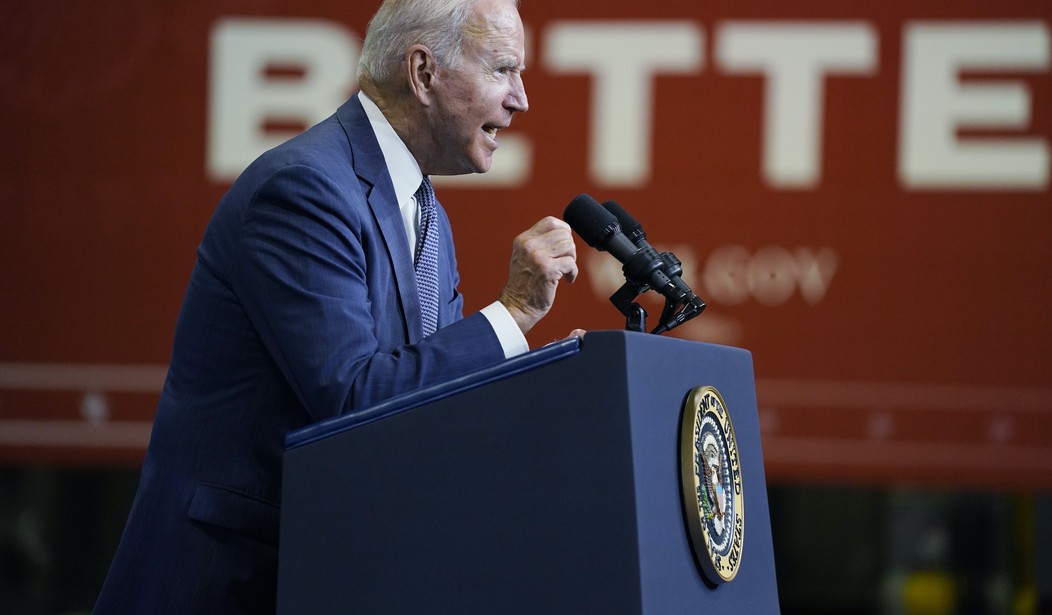Should we ignore the costs of the "Build Back Better" bill and simply focus on the benefits? Wouldn't that be nice? Unfortunately, the most constructive criticisms of the legislation reveal why the magical thinking behind this monstrously expensive spending package will not improve American society.
In urging us to focus less on costs, economist Alan Blinder asserts: "The House bill includes several real winners. Do you oppose universal pre-K education? You shouldn't; it works. Are you against more-affordable child care? Not many Americans are. Do you think we should ignore global climate change? If so, think again."
But these assertions are weak. You can support pre-K education and affordable child care and worry about climate change without believing that heavy-handed government is the best answer. A compelling case can be made that the most effective policy lawmakers could follow to achieve these goals is simply to get out of the way. Indeed, it's likely that a great deal of the BBB legislation will obstruct progress.
Start with pre-K education and child care. It sure does sound good to promise that this massive spending bill will lower what parents pay for pre-K education and child care more broadly, but it won't.
First, the legislation doesn't address why child care is so expensive in the first place. More people seeking it will only collide with ill-advised government restrictions on the supply of such care -- restrictions like the excessive occupational licensing and credential rules that prevent plenty of qualified people from offering their services. A bill that truly aims to reduce the cost of child care would remove these restrictions and allow parents to choose any capable provider.
Recommended
BBB doesn't lift any restrictions and adds more. As University of Chicago economist Casey Mulligan explains, "the bill requires that child-care workers be paid a 'living wage' and that their earnings be 'equivalent to wages for elementary educators with similar credentials and experience.'" As a result, child care will become even more expensive for all families that don't qualify for "free" child care.
How much more expensive? Well, it depends how regulators implement the rule. But Mulligan notes that "elementary-school teachers earned an average of $63,930 annually in 2019, compared with $25,510 for child-care workers. By that benchmark, child-care facilities would need to pay workers 151% more." Matt Bruenig, founder of the left-leaning People's Policy Project, made the similar point that if child care workers were paid like teachers, it would increase middle-class child care costs by $13,000 per year.
Meanwhile, universal pre-K might increase moms' labor force participation, but we should not blindly assume it will be good for children. A recent paper on the effects of a universal child care program in Quebec that followed the children into their teens finds that "there was a large, significant, negative shock to the preschoolers' noncognitive development and health of children exposed to the new program, with little measured impact on cognitive skills," including "increases in early childhood anxiety and aggression."
Making matters worse is that, as some economists have noted, these provisions would create incentives for single parenthood. That's because a dad's income only counts against the child care subsidies received by a mother if they are legally part of the family, and vice versa. This, alongside the disincentives to work like the expanded child tax credit, could spell problems for those children the government is trying to help.
How about climate change? Well, it's amazing that here again legislators are more interested in subsidizing green companies than stopping some of the government's own problematic behavior. For all the demonization of oil and gas companies, the tax code and various agencies throw massive subsidies their way.
Climate solutions are mostly in the hands of private-sector innovators. As Arthur Diamond explains in "Openness to Creative Destruction," his 2019 book, "In a system of innovative dynamism, creative inventors will find ways to reduce global warming, and innovative entrepreneurs will find ways to adapt to it." These innovators need capital, but BBB's increases in taxes on capital would ultimately lead to fewer investments in climate innovations.
As we've seen many times, green subsidies will line the pockets of the influential companies that are already involved in the space. That means we shouldn't expect many new entrants into this market -- just lots of distortions in an area where we need real competition.
While the cost of this legislation is astronomical, the so-called benefits turn out to be costs, too.

























Join the conversation as a VIP Member